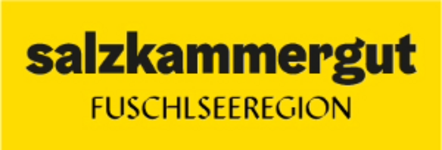History about Fuschl am See
The Fuschl region is mentioned for the first time in the „Congestum Arnonis“ (as a record of it forming part of the estates belonging to the diocese of Salzburg, from the time of Bishop Arno in 790). From the 8th century the whole area of Thalgau-Fuschl am See-Abersee was owned by the lords of the area i.e. archbishops. For a long time Fuschl am See had no name but in the 12th century the area was known as “Fuschilsee”. (Documented by archbishop Konrad I in the year 1141 chronicling the lake fishermen “ad Fuschilsee” which belongs to the monastery of St. Peters.
Area Fuschl am See
Without doubt the first settlers came over Thalgau-Egg from Bavaria around the 8th century to Fuschlsee. Attracted by the presence of drinking water for both themselves and their livestock a small farming hamlet evolved. Consequently a number of corn grinding mills and saw mills developed as necessity. Around 1600 approx. 35 houses existed, almost all being farming estates. A small number of craftsmen also settled but the village developed very slowly. The estates were generally passed from generation to generation and the current archbishop was the overlord of the Fuschler farmers. In the 11th and 12th centuries some estates or even the whole areas would be left or gifted as a grant from the sovereign Princes to a Noble or a Monastery.
Economically history
Economically the area of Fuschl am See relied on forestry and fishing. The inhabitants lived on little, just what they cultivated and forested and what they themselves worked for. Especially during the first decade after 1600 the turn over of owners of the small estates and houses in the village was rapid and a quick sale was the order of the day. Only the largest farm estates could stay in the hands of the same family and there are estates today which have still remained in the possession of a single family for more than 200 years. (e.g. Zuckerstätter family at Schefbaum or the Mösenbichler family at Bambichl) Several corn mills and saw mills on the Eibensee stream had a positive financial significance, especially the Sägemühle. Much later in the 20th century there was a blade factory in the village which unfortunately no longer exists. However nowadays we have other large companies here which you have perhaps heard of – the drink company Red Bull who has its marketing and organisation centre here in Fuschl.
Fuschl is not only economically interesting but also cultural, for example the Ruins of Wartenfels from the year 1259 on a peak at the foot of the Schober mountain towards Thalgau, and the Ruming Mill from the year 1872.
Ecclesiastically history
Ecclesiastically the Fuschl area had from time immemorial belonged to the parish of Thalgau. Thus the Fuschlers had to make the long journey to Thalgau for their Sunday service and the pastoral needs of the faithful were administered from there. The dead had to be buried in the Thalgau cemetery. A wish was often expressed by the population for a church in Fuschl but due to the resistance of the Thalgau priests the wish was overruled.
In 1668 a Salzburg citizen was finally granted permission to build a small chapel but without offertory or cross column. He gave his word that he would make an occasional pilgrimage to St. Wolfgang. Three years before, however he had already built the chapel without the required permission so it was ordered to be demolished. The pleas of the Fuschlers however prevented this. In 1669 the erection of a small altar dedicated to St. Erasmus was approved. Due to disagreement of the position for a new church and financial problems, the start of a new church was delayed until 1804.
Twice the church was destroyed by fire.
6th July 1870 – lightening struck the church tower and caused minor damage
10th June 1880 – again lightening struck the church tower – tower, altars, sculptures and church roof fell in
History today
Today the community of Fuschl am See has approx. 1500 inhabitants. Throughout the years of history Fuschl has developed from a small farming and fishing village into a tourist resort. One notices however that this change was truly positive. For the last 50 years there has been a restriction of building by the lakeside. Not only the farmers who care for the landscape, but the population of Fuschl is very aware of the natural beauty of its inheritance. Sewage is no longer disposed of in the lake but is transported via a canal to a sewage works in Thalgau. Together with the Wolfgang lake, the Fuschl lake is one of the cleanest and has got the clearest water of Land Salzburg and the Salzkammergut with drinking water quality, of which we are naturally very proud.



